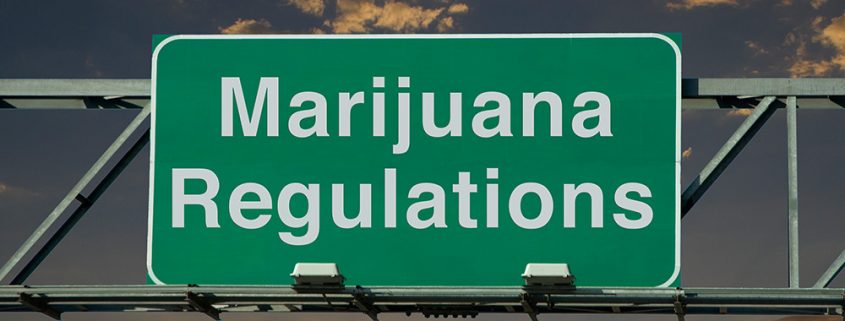Final Regulations Out In California: Will California’s Section 5032 Disrupt the Cannabis Market?
On December 7, 2018, California’s three cannabis licensing authorities submitted final versions of the state cannabis regulations to be approved by January 16, 2019. A major change in the regulations comes from § 5032 Commercial Cannabis Activity. This section reads as follows:
All commercial cannabis activity shall be conducted between licensees.
Licensed retailers and licensed microbusinesses authorized to engage in retail sales may conduct commercial cannabis activity with customers in accordance with Chapter 3 of this division.
Licensees shall not conduct commercial cannabis activities on behalf of, at the request of, or pursuant to a contract with any person that is not licensed under the Act. Such prohibited commercial cannabis activities include, but are not limited to, the following:
- Procuring or purchasing cannabis goods from a licensed cultivator or licensed manufacturer.
- Manufacturing cannabis goods according to the specifications of a non-licensee
- Packaging and labeling cannabis goods under a non-licensee’s brand or according to the specifications of a non-licensee.
- Distributing cannabis goods for a non-licensee.
It should be apparent from this provision that if you want to make money participating in the legal cannabis industry, you must follow the laws. There are different licenses for different links on the supply chain – from cultivating, to processing and manufacturing, to transporting, distributing, and retailing. Under these regulations, everyone in that chain needs to hold a license.
If you have gone through the heavy burden of time and finances to get licensed, dealing with an unlicensed entity on any stop of that chain can have dire consequences. The new regulations appear to be aimed at the practice of the cannabis industry that circumvents the current licensing requirements in a term known as “white labeling”.
“White labeling” is when one entity manufactures a certain good, but then sells it to a second company who packages and brands it as their own. This is a very standard practice in many different industries. However, the problem with cannabis is illegal under the Federal Controlled Substances Act (“CSA”) 21 U.S.C. § 812 which classifies marijuana as a Schedule 1 substance with a high potential for abuse, no currently accepted medical use in treatment, and lack of accepted safety for use under medical supervision.
So if you want to make money in cannabis in the State Of California, you must get licensed or negotiate an ownership stake in a licensed company. To get your own license, for one thing you need to have to a commercial space. This is no problem for big money corporate cannabis players but is a huge challenge for many small to midsize cannabis businesses.
The new regulations also add a higher tax burden the cannabis businesses. Generally, businesses can deduct ordinary and necessary business expenses under I.R.C. §162. This includes wages, rent, supplies, etc. However, in 1982 Congress added I.R.C. §280E. Under I.R.C. §280E, taxpayers cannot deduct any amount for a trade or business where the trade or business consists of trafficking in controlled substances…which is prohibited by Federal law. Cannabis, including medical marijuana, is a controlled substance. What this means is that dispensaries and other businesses trafficking in cannabis have to report all of their income and cannot deduct rent, wages, and other expenses, making their marginal tax rate substantially higher than most other businesses.
Up until now, one workaround has been to form a partner company that never “touches the plant”, but instead handles marketing or apparel sales, or other ancillary services. Under this theory the tax burden could then be shifted between the two companies, allowing some revenue to be taxed at the more standard rates unassociated with the plant. Clearly this loophole closes tight now that § 5032 requires licensure.
What Should You Do?
Considering the tax risks of cannabis you need to protect yourself and your investment. Level the playing field and gain the upper hand by engaging the cannabis tax attorneys at the Law Offices Of Jeffrey B. Kahn, P.C. located in Orange County (Irvine), San Francisco Bay Area (including San Jose and Walnut Creek) and other California locations. We can come up with tax solutions and strategies and protect you and your business and to maximize your net profits.


 Follow
Follow Follow
Follow
